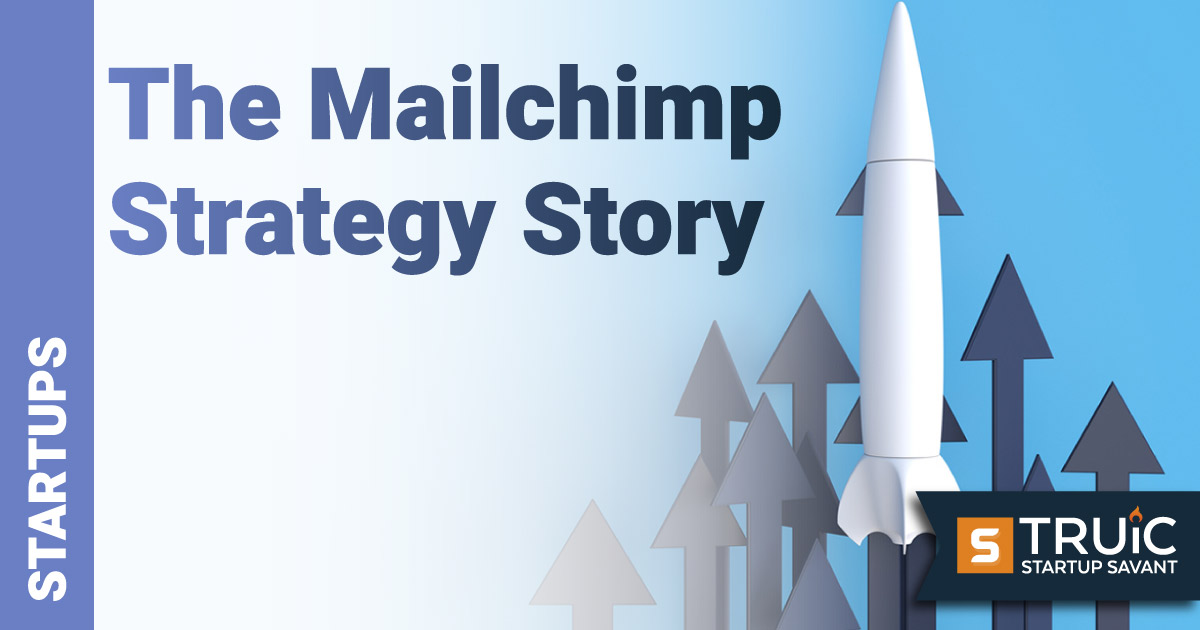The Origin Story of an Accidental Billion-Dollar Startup
The Strategy Story of Mailchimp

Last Updated: By TRUiC Team
Is it possible to start a hugely successful business at a time in history when the very product you're selling is seen as a nuisance to so many? Mailchimp founders Ben Chestnut and Dan Kurzius will tell you it is possible. In fact, it might be the perfect time to present a solution to the problem.
In 2001, when Chestnut and Kurzius started a web design business (with an email marketing service as a sideline), spam mail made up a shocking 95% of all emails sent and received, according to one study. So it may have seemed completely counterintuitive to present a product that, if not used ethically, may only add to the spam issue.
Origin of the Startup Idea
Chestnut and Kurzius soon found, though, that their small-business email marketing offering was actually far more popular than their main web design business. Both founders had grown up in households where small businesses paid the bills, so they not only deeply understood the struggles of the entrepreneur, they also found great personal satisfaction in making the lives of small business owners easier.
Mind you, Mailchimp was certainly not the only business offering this type of service at the time (hence the proliferation of spam), but it ticked all the boxes for entrepreneurs and startups. It was cheap, easy-to-use, and innovative. There was nothing intimidating about Mailchimp's offering, and it was exactly this that most appealed to a market already overwhelmed with the complexities of starting a business and creating a brand.
When the demand for this email marketing product became clear, Chestnut unearthed a bit of code he'd previously written for a digital greeting card product that had never taken off. With a few tweaks, and the addition of the now-iconic chimpanzee mascot, Freddie, Mailchimp was born.
Feeling inspired? Learn how to launch your company with our guide on How to Start a Startup.
Development of a Startup
Mailchimp's humble beginnings and the founders' sense of humor would find their way into the business's brand elements over the years. Lighthearted communication became a staple of what customers came to expect from this email marketing platform, but the founders knew they had a fine line to tread. They might be dealing with small business owners, but these were still professional people who wanted to be able to trust the platform.
One of the aspects of Mailchimp's success has always been its closeness to the customer. The aforementioned casual banter in their communication certainly played into that, but it would be Chestnut and Kurzius' deep understanding of what entrepreneurs needed that really made their offering stand out. This closeness to their market would be deeply reflected in their 2009 Freemium offering, which, at the time, was rather unique—and very popular. No seven-day free trials for this company — they were giving a selection of their services to their customers, for free, forever! This development may have seemed counterintuitive to most business people, but as Chestnut explained, it was entirely strategic in its timing.
Mailchimp did not release this Freemium version right out of the gates because it would have devalued their brand. Hardly anyone else was doing this at that time. Prospective users may have wondered, "is their product so bad they have to give it away?" But by timing the Freemium release at a point where a large group of people already saw the value of the offering, Mailchimp actually boosted their paid plan and paid feature sales tremendously.
Where They Are Today
Over the years, Mailchimp has held true to its brand promise to help small businesses and individual entrepreneurs "look pro and grow." Their offering has expanded considerably and now includes social media scheduling and posting, creating and posting digital ads, a marketing CRM, shoppable landing pages, websites, postcards, advanced automation, and smart content tools.
In 2017, Mailchimp was named Inc.'s Company of the Year, and in that same period, it went through a huge growth spurt, adding millions of new customers and hundreds of new employees. Soon after these changes, the business reached $600 million in revenue per year. For the founders, the growth has come with the inevitable shift of focus. They are no longer involved in every single small decision, and often, product launches happen without much input from them, but this has freed them up to look to the future of the business.
Today, Chestnut says that he intends to move away from the email marketing identity that has been so successful in the past. Some of the new offerings Mailchimp released in the last few years certainly point to a shift in product focus, although the brand identity and mission are still clear. Among the most successful of the product line additions is a partnership with Square, which has given Mailchimp users the capability to create landing pages without needing to own entire domains.
Mailchimp remains one of the most iconic American business success stories, and it's more than a little on-brand that it all started as a bit of a happy accident.
Next Steps:
- Keep up with more startup companies by following Startup Savant on Google News!
- Start your own startup by reading our How to Start a Startup guide.
Tell Us Your Startup Story
Are you a startup founder and want to share your entrepreneurial journey with our readers? Click below to contact us today!


